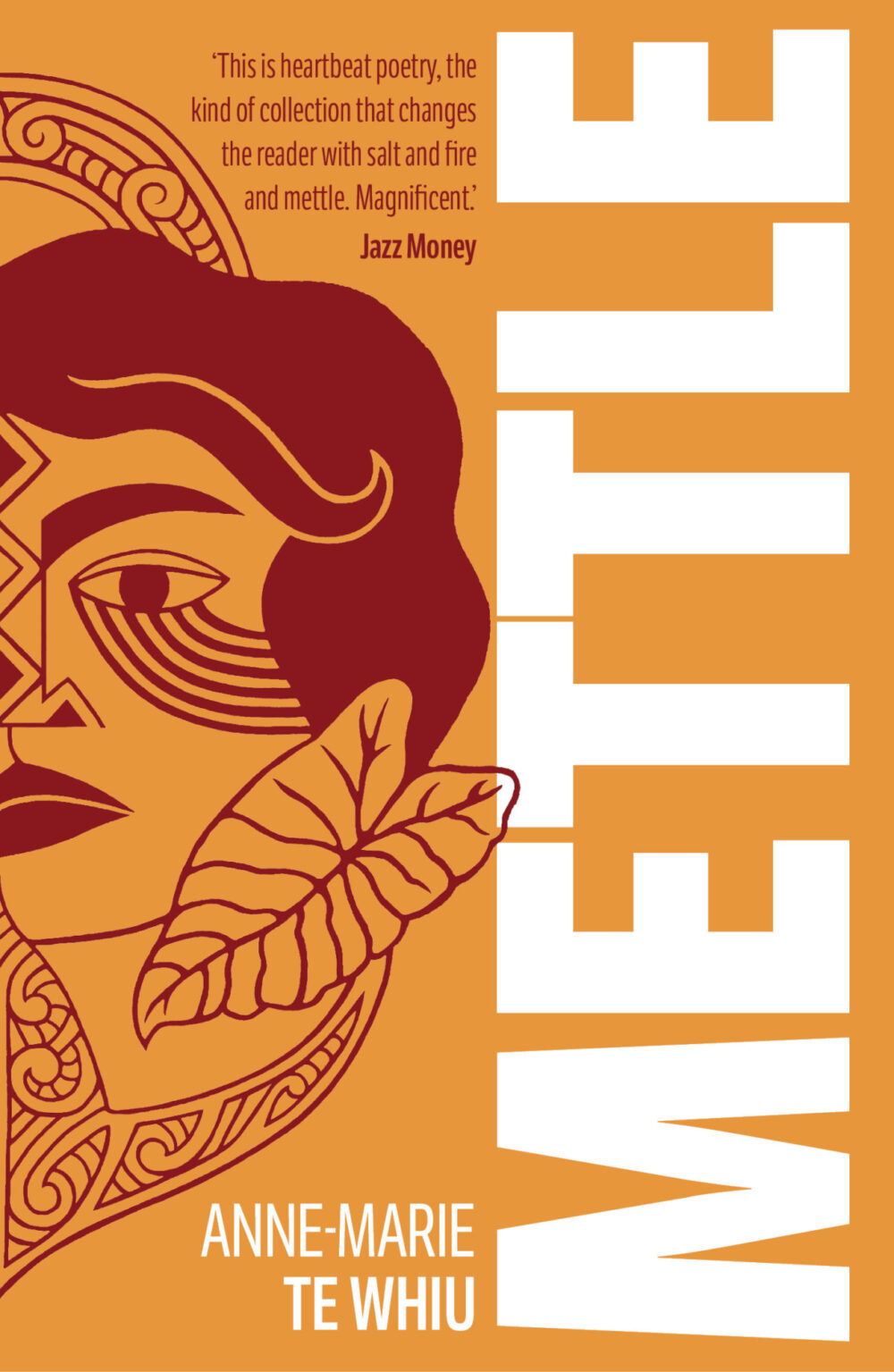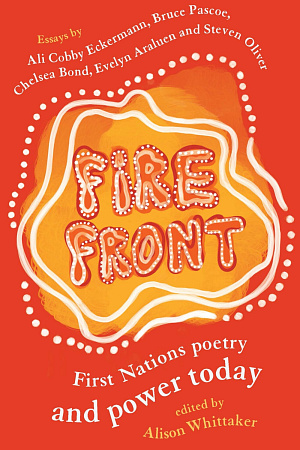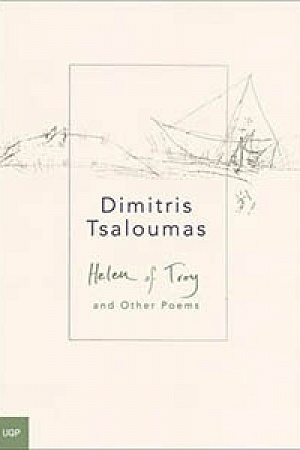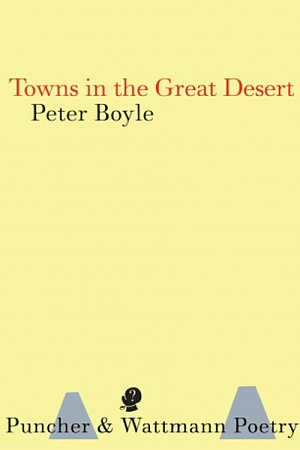ABR receives a commission on items purchased through this link. All ABR reviews are fully independent.
go slower | slower | still
What is immediately striking about Kirli Saunders’s Eclipse and Anne-Marie Te Whiu’s Mettle is that although both collections have much in common it is the differences that engage the reader. Saunders is a Gurnai woman and Te Whiu an Australian of Māori heritage: both poets write with an assurance and freedom founded on their respective heritages and the political struggles of an earlier generation of First Nations writers. In consequence, the poetry in both collections is precise and individual in its consideration and depiction of contemporary First Nation lives and subjectivities.
Eclipse is distinguished by its concern to nurture and affirm relationships between people and country, and Saunders herself suggests that the reader carry Eclipse around to read over coffee, with friends, or while calling in sick on a rainy day. A blank page is provided with the suggestion it could be used for notes or a pressed flower. Interspersed through the poems are Saunders’ own drawings of water, orchids, mushrooms, butterflies, fish, dingoes. The unmediated simplicity of the drawings is in keeping with the sincerity and openness of Eclipse. In the poems ‘Ancestors say’ and ‘we came for revolution’, Saunders makes use of the forms of concrete poetry to suggest a cosmic dimension to Aboriginal being. As I’ve described it, this may sound cute and sentimental; it is in fact the coherent realisation of a restorative project which seeks to undo notions of calculated self-interest and ‘toughness’.
In a world of transactional relationships and the manipulative and often deceitful noise of corporate media, Saunders foregrounds intimacy and openness, with all the risks this can entail. In ‘now a clean slate,’ a deceitful former lover resorts to First Nations ritual in a futile attempt to salve her conscience: ‘altar | light | smoke | incantation / an amalgamation of stolen practices / on stolen land / to cleanse the space / (but not her conscience)’.
If romantic relationships with their highs are inherently unstable, communal relationships with Mothers, Grannies, mob, kids, kin, and Aunties are enduring and connected to larger cultural rhythms and processes. As suggested in poems like ‘we came for revolution’ and ‘go slower | slower | still’, these apparently quotidian relationships can intersect with deep time and vast cosmic cycles: ‘waft and weave | weld in oneness | we chatter amongst us | fibres, found and forged | from tree and marsh’.
Te Whiu’s Mettle is an often-confronting work which takes as its subject matter solitude, vulnerable men, deep but troubled familial relationships, and the sometimes tragic conjunction of Māori heritage and grim urban realities. If Saunders encourages sharing and interconnectedness, Te Whiu coolly invites the reader to enter into a compact with her. In ‘High Tide of Relationality’ which functions as an introduction to Mettle, she writes:
one of the starting points
between you and me
is here on this page
I’ll hold on
to one end
of a line
you the other
let’s pull the rope tight
learn from the tension
build from the slack
Reader and poet are invited to collaborate in creating meaning from her text. There is relentless power to much of Te Whiu’s poetry and she has a gift for precise images, haiku-like in their discordant clarity. In the second stanza of ‘A Returning’ she writes: ‘Kohukohu calls me close / thick morning mist rise / wild pigs draped over tray-back / Panguru stretches the afternoon’. Kohukohu and Panguru are both communities to which the poet is connected. The notion of connection is itself disturbed by the image of the morning’s rising mist contrasted with the immobile, dead pigs (presumably shot by hunters during the night). In a few lines Te Whiu creates a powerful sense of the unheimlich. In ‘Dark as Last Night’ she brings this dissonance into an urban setting: ‘I catch a tram / direct to your apartment / front door to grey carpet / sticky handrail to staircase / this roof does not shelter me The drabness of the images insinuates a sad inevitability to whatever human interaction will follow once the staircase has been climbed. This sense of hopelessness is made more explicit in ‘hood/ie’ which describes a visit to the poet’s brothers who are living in diminished circumstances. One of the verses sums up dysthymia, the persistent low-grade depression that often goes unnoticed with poverty and substance abuse: ‘Mum’s ashes take pride of place / a pyramid of pre-rolled cigarettes waits patiently’. The image suggests no one has the will to do something with the ashes or the ashtray. Such apathy is often inexplicable to the goal-oriented middle class who misinterpret it as slothfulness. Surprisingly, when these poems are read in their entirety, one becomes aware of a subtle compassion, something that speaks of loyalty and the enduring power of familial connection.
As well as these gems there are longer narrative poems. Te Whiu takes care that these don’t drift into prose. ‘(Two of) the Bodies I Have Found’ addresses death, not as something abstract but as a state corporealised in those we have known and loved. In ‘Wayne’, an alarm is set to wake someone for a night shift at Coles; the alarm beeps on but Wayne’s heart has stopped. In ‘Nanna’, concern at Nanna’s unanswered telephone prompts a late-night visit. The bedroom lamp is on but her body is on the floor: ‘Phlegm from mouth / Blood from cheek / Nanna in her nightie’.
Though she is already writing poetry of great power and originality, Te Whiu’s experimentation with form in Mettle is still a work in progress. Even better work may be to come. Both Te Whiu and Saunders build on their predecessors to invite us into cultural and poetic worlds that are allusive, complex, and engaging.
ABR receives a commission on items purchased through this link. All ABR reviews are fully independent.













Leave a comment
If you are an ABR subscriber, you will need to sign in to post a comment.
If you have forgotten your sign in details, or if you receive an error message when trying to submit your comment, please email your comment (and the name of the article to which it relates) to ABR Comments. We will review your comment and, subject to approval, we will post it under your name.
Please note that all comments must be approved by ABR and comply with our Terms & Conditions.